Life in the Peace Corps will not be easy. There will be no salary and allowances will be at a level sufficient only to maintain health and meet basic needs. Men and women will be expected to work and live alongside the nationals of the country in which they are stationed—doing the same work, eating the same food, talking the same language.
But if the life will not be easy, it will be rich and satisfying. For every young American who participates in the Peace Corps—who works in a foreign land—will know that he or she is sharing in the great common task of bringing to man that decent way of life which is the foundation of freedom and a condition of peace. – President John. F Kennedy, after signing Executive Order 10924, establishing the Peace Corps
Today, we commemorate the 50th anniversary of the Peace Corps; an organization that has spent 50 years dedicated to developing world peace and friendship. Ever since Senator John F. Kennedy to serve their country in the cause of peace by living and working in developing countries, The Peace Corps has been a monumental program in which more than 200,000 volunteers have served.
Much has changed in 50 years, but the need for volunteers is still significant. As the needs of the world change, the volunteer response shifts as well. While volunteers continue to do important work like bringing clean water to communities and teaching children, today’s volunteers also work to improve HIV/AIDS awareness, information technology, and business development.
Peace Corps Volunteers continue to combat current global issues and help countless individuals who want to build a better life for themselves, their children, and their communities.
The legacy of the Peace Corps is not only the thousands of volunteers that have visited and served in 139 countries, but it was the inspiration for national service programs like AmeriCorps.
Happy Anniversary, Peace Corps. Here’s to another fifty years of bringing the world a way of life which is the foundation of freedom and a condition of peace.

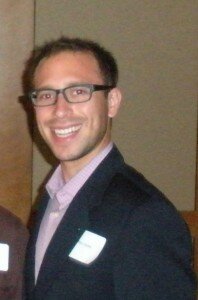 Today’s blog post comes from Perry Teicher, a Returned Peace Corps Volunteer who served in Kazakhstan from 2007-2009. This is the fourth of five posts about his
Today’s blog post comes from Perry Teicher, a Returned Peace Corps Volunteer who served in Kazakhstan from 2007-2009. This is the fourth of five posts about his 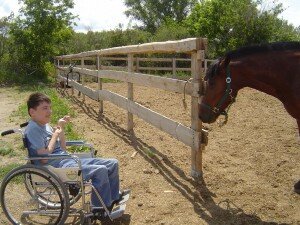 Starting with one participant – Yan – over 10 children eventually participated in our riding program. Over the course of the months, parents started noticing changes in their children; ranging from becoming more outgoing to better posture. In addition to the parents and riders, our volunteer played a role, learning how to work with horses and learning basic therapeutic techniques.
Starting with one participant – Yan – over 10 children eventually participated in our riding program. Over the course of the months, parents started noticing changes in their children; ranging from becoming more outgoing to better posture. In addition to the parents and riders, our volunteer played a role, learning how to work with horses and learning basic therapeutic techniques. Today is the worldwide launch of inaugural Peace Corps month celebrating the
Today is the worldwide launch of inaugural Peace Corps month celebrating the 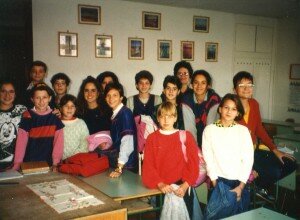 I had speculated on Hungary in my studies, but I didn’t know at that point how easily I would fall for the beauty of the Hungarian spirit.
I had speculated on Hungary in my studies, but I didn’t know at that point how easily I would fall for the beauty of the Hungarian spirit.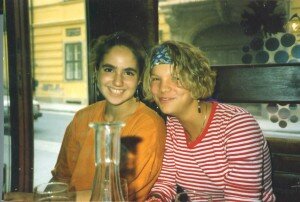 Imagine a country where the only supermarket was called “SUPERMARKET,” where there were no brands to choose from, no choices. All the “DEPARTMENT STORES” had the same kinds of coats in one season in the same styles and in the same colors… No room to express- no way to interpret art, no superficial way, anyhow, to just be different.
Imagine a country where the only supermarket was called “SUPERMARKET,” where there were no brands to choose from, no choices. All the “DEPARTMENT STORES” had the same kinds of coats in one season in the same styles and in the same colors… No room to express- no way to interpret art, no superficial way, anyhow, to just be different.
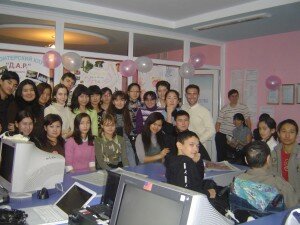 More than two years after the club launched, there are now over 100 active volunteers. Our starting cadre have graduated and many have left the city to pursue careers and advanced degrees, but they continue to stay involved, using their volunteer experience as a basis for working with others. In Aktobe, the Volunteer Club has become known as a high point of youth involvement, invited to participate in activities throughout the area. Peace Corps Kazakhstan usually only places three Peace Corps Volunteers consecutively at an organization. After the volunteer that replaced me, my organization already had three volunteers. Due to the success of the Volunteer Club and its growth as an independent organization, the Volunteer Club itself has received its own Peace Corps Volunteer.
More than two years after the club launched, there are now over 100 active volunteers. Our starting cadre have graduated and many have left the city to pursue careers and advanced degrees, but they continue to stay involved, using their volunteer experience as a basis for working with others. In Aktobe, the Volunteer Club has become known as a high point of youth involvement, invited to participate in activities throughout the area. Peace Corps Kazakhstan usually only places three Peace Corps Volunteers consecutively at an organization. After the volunteer that replaced me, my organization already had three volunteers. Due to the success of the Volunteer Club and its growth as an independent organization, the Volunteer Club itself has received its own Peace Corps Volunteer.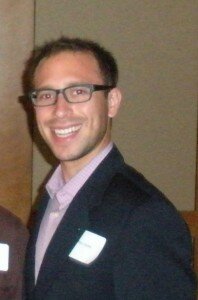 Perry Teicher is the Repair the World Fellow, 2010-2011. He served in Peace Corps Kazakhstan (2007-2009). Feel free to e-mail him at .
Perry Teicher is the Repair the World Fellow, 2010-2011. He served in Peace Corps Kazakhstan (2007-2009). Feel free to e-mail him at .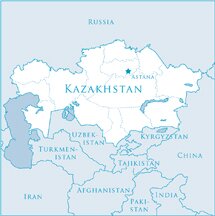
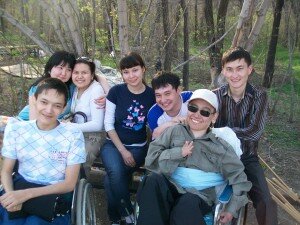 I worked at the
I worked at the 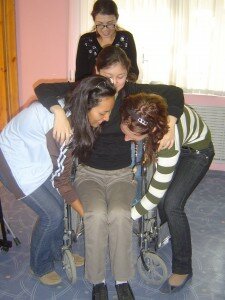 4) Training volunteers Volunteer training included physical and psychological preparations, such as how to use a wheelchair and strategies to deal with miscommunication. My Kazakhstani colleagues all had a physical disability and thus had greater credibility as they could speak from personal experience.
4) Training volunteers Volunteer training included physical and psychological preparations, such as how to use a wheelchair and strategies to deal with miscommunication. My Kazakhstani colleagues all had a physical disability and thus had greater credibility as they could speak from personal experience.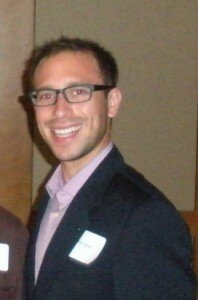 Perry Teicher is a Returned Peace Corps Volunteer (Kazakhstan, 2007-2009). He is Co-Founder and President of TheGivingApp, L3C, a company focused on creating mobile applications for non-profits.
Perry Teicher is a Returned Peace Corps Volunteer (Kazakhstan, 2007-2009). He is Co-Founder and President of TheGivingApp, L3C, a company focused on creating mobile applications for non-profits.
